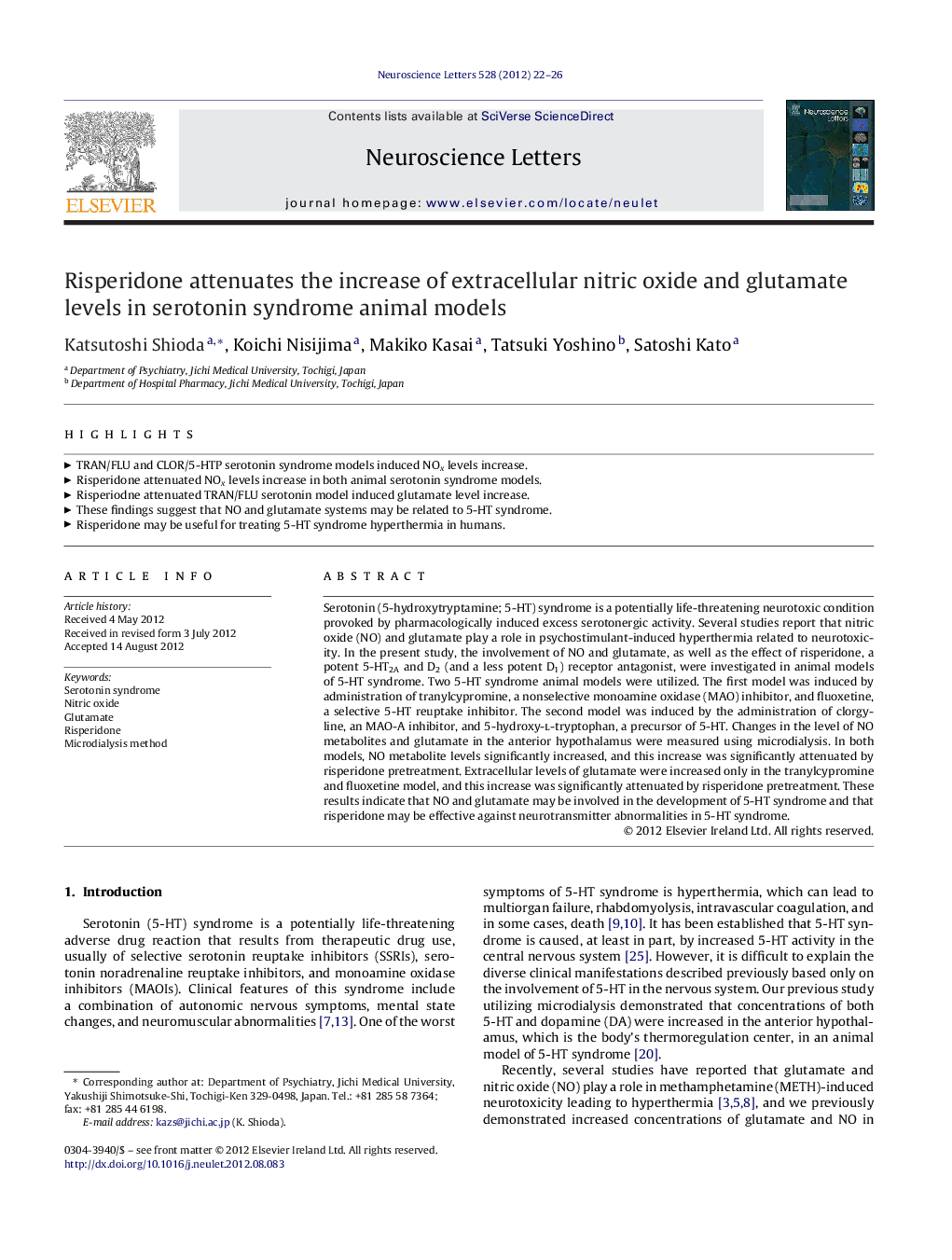| Article ID | Journal | Published Year | Pages | File Type |
|---|---|---|---|---|
| 4344190 | Neuroscience Letters | 2012 | 5 Pages |
Serotonin (5-hydroxytryptamine; 5-HT) syndrome is a potentially life-threatening neurotoxic condition provoked by pharmacologically induced excess serotonergic activity. Several studies report that nitric oxide (NO) and glutamate play a role in psychostimulant-induced hyperthermia related to neurotoxicity. In the present study, the involvement of NO and glutamate, as well as the effect of risperidone, a potent 5-HT2A and D2 (and a less potent D1) receptor antagonist, were investigated in animal models of 5-HT syndrome. Two 5-HT syndrome animal models were utilized. The first model was induced by administration of tranylcypromine, a nonselective monoamine oxidase (MAO) inhibitor, and fluoxetine, a selective 5-HT reuptake inhibitor. The second model was induced by the administration of clorgyline, an MAO-A inhibitor, and 5-hydroxy-l-tryptophan, a precursor of 5-HT. Changes in the level of NO metabolites and glutamate in the anterior hypothalamus were measured using microdialysis. In both models, NO metabolite levels significantly increased, and this increase was significantly attenuated by risperidone pretreatment. Extracellular levels of glutamate were increased only in the tranylcypromine and fluoxetine model, and this increase was significantly attenuated by risperidone pretreatment. These results indicate that NO and glutamate may be involved in the development of 5-HT syndrome and that risperidone may be effective against neurotransmitter abnormalities in 5-HT syndrome.
► TRAN/FLU and CLOR/5-HTP serotonin syndrome models induced NOx levels increase. ► Risperidone attenuated NOx levels increase in both animal serotonin syndrome models. ► Risperiodne attenuated TRAN/FLU serotonin model induced glutamate level increase. ► These findings suggest that NO and glutamate systems may be related to 5-HT syndrome. ► Risperidone may be useful for treating 5-HT syndrome hyperthermia in humans.
